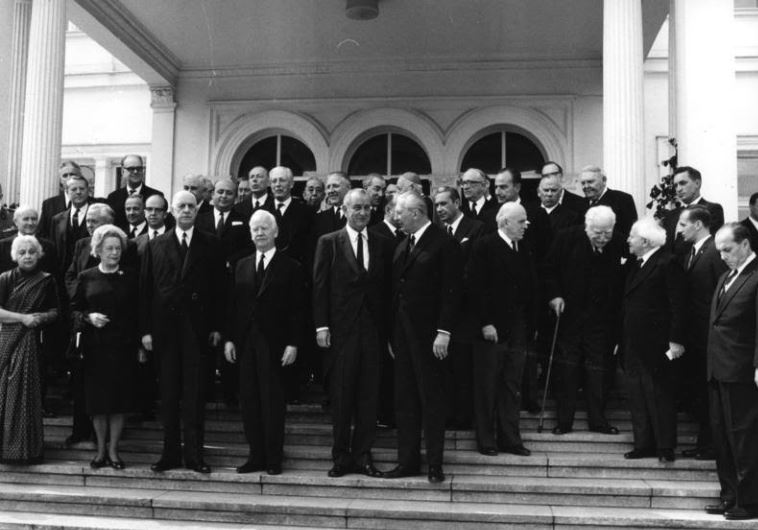Today in History: Israel and Germany began road to mutual cooperation
Ben-Gurion: After having met Adenauer, I’m sure the Germany of today is not the Germany of yesterday
 David Ben-Gurion (third right) attending Adenauer's funeral in 1967(photo credit: Wikimedia Commons)
David Ben-Gurion (third right) attending Adenauer's funeral in 1967(photo credit: Wikimedia Commons)